
JULIA LEE BARCLAY-MORTON – YOGA, WATER AND REWRITING AUTISM
I interviewed writer Julia Lee Barclay-Morton about her experience of autism. Julia began as an experimental dramatist in New York, moving to the UK to
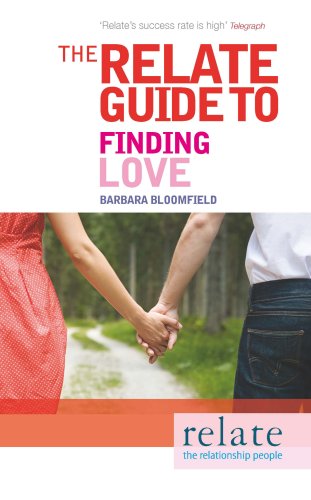
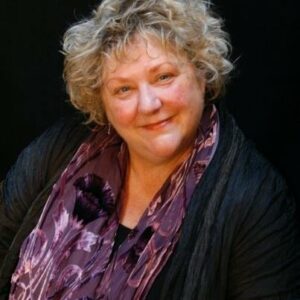
I interviewed ex-BBC and freelance writer, Barbara Bloomfield, who turned to counselling and therapeutic arts in a career change and went on to write five books about relationships and society. Barbara has a diploma in family therapy, a master’s in creative writing and taught undergraduates for six years at Bath Spa University. She is a former chair of Lapidus International and currently co-editor of the Lapidus Magazine.
Leslie: What were the incidents and factors that led you into your early career in journalism and broadcasting?
Barbara: I went to a very old-fashioned grammar school where they were really only interested in you if you were “Oxbridge Material.” Which apparently I was not.
I came from a respectable working-class background and my mother was working as a cleaner for various rich people in our village. So I was comfortable with being part of the ‘underclass,’ I guess. As a school summer project, I interviewed all the people who lived in boats along our local canal and i don’t remember anyone at school offering praise or appreciation of what might have been a nice little social history project. They just weren’t tuned into my particular interests. After school, having been sacked from my job as an auctioneer’s apprentice, I turned to the local careers office and the man was stumped when I showed no interest in teaching or nursing. On his big wooden desk, there was a leaflet and i read the title upside down. It said ‘Journalism.’ I picked it up and waved it at the man. “This is what I want to do!” I shouted at him. He said gloomily: “You’ll find that’s very hard to get into.”
Leslie: Tell us about your career, including the BBC. What did you learn about people through working as a journalist?
Barbara: Journalism college was followed by becoming an apprentice reporter on the Southern Evening Echo in Southampton and then a producer and reporter for the BBC in Southampton. After about five years doing that, I moved to London to LBC/IRN and freelanced on various newspapers and magazines, including The Times and the Evening Standard. For me, the great thing about journalism was that the stories were usually new and fresh and all you needed was something I was already good at: being interested, tenacious, curious and asking good questions. During the years at LBC/IRN I was lucky enough to work in China and then Central America as a journalist, covering stories like the civil war in El Salvador. That was a hard time, being lonely and alone in a foreign country without family support. I got myself into a lot of difficult situations like the Mexico City earthquake, where the tower blocks around me seemed to ripple in the dust as I cowered in the doorway of my flat. Honestly, this was a hard life and, by the end of it, I was glad to get back to the UK.
Leslie: Your decision to become a Relate counsellor at the age of 36 seems like an unusual move. On the face of it, jourbnalism and counselling are very different jobs. What led to counselling and what are the differences and similarities between the two?
Barbara: Someone once said that the problem with broadcasting and journalism is that you get to know very interesting people – but only for 15 minutes. Despite being around amazing interviewees – Foreign Secretary David Owen, President Jimmy Carter, Archbishop Desmond Tutu – I did get fed up with the vapidity of journalism and longed for more depth. So, when the kids were four and two, I started to train as a Relate Counsellor and Supervisor of counsellors, and ended up doing that job for 25 years, working mainly with couples and families. I would say that journalism and counselling are quite similar in some ways. My style of counselling is very much about asking questions and helping people to reflect more deeply on what they say and what they believe. I’m really interested in the types of questions that can promote change for individuals or between family members. Relational depth and reflexivity is present in counselling in a way it’s not really available in journalism. Seeing one’s stories in print or making radio programmes is very nice and ego-stroking but it’s more satisfying working at depth, working with the unknown and unconscious processes.
Leslie: What is your creative process as a writer of fiction and non-fiction? How do you stay on task and nurture/develop your best writing?
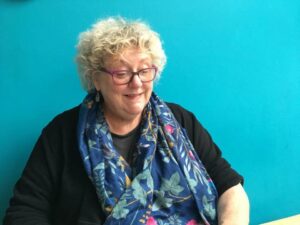
Barbara: I have a scattergun attitude to writing. I will read anything and I will write anything that interests me. There was a period during my MA in creative writing where TV scriptwriting appealed and I spent a lot of time crafting a full length film script and an episode of the TV series, Doctors. And what I discovered by the end of that was that 1. I wasn’t fast enough to make it as a scriptwriter and 2. I wasn’t enough of an everywoman to be able to write for TV. By that I mean that TV broadly relies on digging out the dilemmas that people face in ordinary, everyday life and I wasn’t really interested in those kitchen sink problems. My stories tended to be slightly ‘too weird’ to be right for selling and, although my film script was shortlisted for a film competition, it was too high a hill to climb to get anywhere. I’m still very much in love with that film script and have often thought of making the whole film myself. This is the great thing about modern technology – I could actually make that film myself one day!
As to staying on task, this is not a problem. Journalism is a great place to learn how to concentrate when you have 50 people in the same room, all shouting their heads off with the phones ringing off the hook.
Leslie: What do you do when you lead people in therapeutic writing? What’s the story about how you developed those techniques?
Barbara: About 15 years ago, I started to feel that talking with people about their problems was not enough to bring about the changes they wanted. I started to have a yearning to bring ‘activity’ into the counselling room, whether it was writing, movement, or other creative arts. I started experimenting with different techniques but only in situations where clients wanted to ‘try something different’ or I felt the clients were really stuck in repeating an unproductive story. Traditionally, therapy has been a ‘talking cure’ but different styles of learning suit different people. Some people are kinaesthetic: they need to move, to touch or to express through movement. Others need encouragement to be brave and involve themselves in political or charitable activity with and for others. I have also started to take some clients out into the woods to interact with nature and trees because climate anxiety is a deep undercurrent in contemporary mental distress and it’s helpful to connect with courage, taking action and building a voice on such matters.
Creative counselling involves taking a risk on both sides, myself and the clients. It means abandoning the closely-held stories that keep clients in a rut and instead, inviting them to take action. One of the best things about creative arts for therapeutic purposes is that they are gentle and kind: the stories and activities stay in metaphor and create a spacious place and an unexpected platform from which to view the stories of one’s life.
Leslie: Who have been the outstanding people you’ve worked with as Chair of Lapidus International? Why them?
Barbara: Lapidus International is a very warm community of about 500 therapeutic writers and, like a lot of members, I feel the satisfaction I get from working with other members has greatly helped my mental health over the years I’ve been involved. But in terms of personal direction, I’d like to single out Pragna Patel, a founder of Southall Black Sisters for her recent analysis of the state of progressive politics in the UK. She suggests that identity politics has become a considerable challenge not just for feminists but for all social justice movements. She feels there is something regressive about any narrow focus on individual experiences of victimhood made at the expense of structural discrimination and oppression. Feminism has always been about joining the dots and saying that no one is free until everyone is free. When I heard Pragna Patel say these words, she crystallised a lot of half-baked thoughts I’d been having. Progressive politics is about community and what joins us: let’s not go down blind alleys…
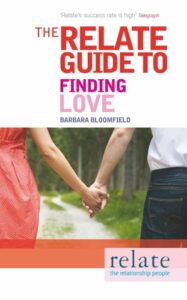 Leslie: Tell us about your published books and how you put one of them together?
Leslie: Tell us about your published books and how you put one of them together?
Barbara: In the early 1980s I was a student at Ruskin College, the Trade Unions college in Oxford. During that time I worked with the famous social historian, Raphael Samuel and with Guy Roper to put together a book called The Enemy Within: Pit Villages during the Miners’ Strike of 1983-5. This was nominated by Time Out as one of the most important books of 1986. I wrote a book for London Weekend Television and then updated it for Vermillion with the title, The Relate Guide to Finding Love, which involved me going on 27 dates. I wrote a book about finding love and sex in later life and, more recently, I worked with cartoonist Chris Radley on a book called Couple Therapy: Dramas of Love and Sex, which is three stories about imaginary couples and shows how I would help them unpick their relationship problems.
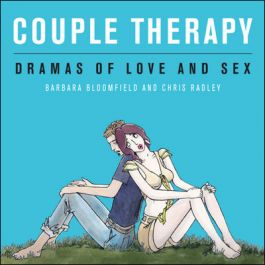 It’s a cartoon book which was a fun format to work with. Chris came to my counselling office and watched me working and drew some initial sketches. He made some funny assumptions: one cartoon shows me handing out tea and biscuits to my clients – we would never do that during counselling! I learned quite a bit about working visually and was interested in how Chris constructed emotions inside the square boxes, for example, indicating stress by dividing the boxes into parallel lines. We take visual metaphors for granted and Chris unpicked that process of illuminating a story for me. This book is the world’s first and possibly only book about couple counselling and I’m proud of the fact that it has been translated into 13 different languages. But the only country in which it is ‘popular’ is Poland – for some reason they really seem to like it! Off the back of this book, I got to work at Warsaw University with psychology students, which was very interesting.
It’s a cartoon book which was a fun format to work with. Chris came to my counselling office and watched me working and drew some initial sketches. He made some funny assumptions: one cartoon shows me handing out tea and biscuits to my clients – we would never do that during counselling! I learned quite a bit about working visually and was interested in how Chris constructed emotions inside the square boxes, for example, indicating stress by dividing the boxes into parallel lines. We take visual metaphors for granted and Chris unpicked that process of illuminating a story for me. This book is the world’s first and possibly only book about couple counselling and I’m proud of the fact that it has been translated into 13 different languages. But the only country in which it is ‘popular’ is Poland – for some reason they really seem to like it! Off the back of this book, I got to work at Warsaw University with psychology students, which was very interesting.
If you want to read more about Barbara’s approach to therapy, her article in the LIRIC Journal is freely available here
Next week, I interview printmaker Hester Cox whose colourful and richly textured collagraph prints are often inspired by things seen while out fellrunning.
ABOUT LESLIE TATE’S BOOKS:

I interviewed writer Julia Lee Barclay-Morton about her experience of autism. Julia began as an experimental dramatist in New York, moving to the UK to

I interviewed Gillean McDougall from Glasgow, who edited the collaborative projects Honest Error (on Charles Rennie Mackintosh and his wife Margaret Macdonald) and Writing the

I interviewed French writer Delphine de Vigan, whose book, No et moi, won the prestigious Prix des libraires. Other books of hers have won a clutch

I interviewed Joanne Limburg whose poetry collection Feminismo was shortlisted for the Forward Prize for Best First Collection; another collection, Paraphernalia, was a Poetry Book Society Recommendation. Joanne

I interviewed Katherine Magnoli about The Adventures of KatGirl, her book about a wheelchair heroine, and Katherine’s journey from low self-esteem into authorial/radio success and
| Cookie | Duration | Description |
|---|---|---|
| cookielawinfo-checkbox-analytics | 11 months | This cookie is set by GDPR Cookie Consent plugin. The cookie is used to store the user consent for the cookies in the category "Analytics". |
| cookielawinfo-checkbox-functional | 11 months | The cookie is set by GDPR cookie consent to record the user consent for the cookies in the category "Functional". |
| cookielawinfo-checkbox-necessary | 11 months | This cookie is set by GDPR Cookie Consent plugin. The cookies is used to store the user consent for the cookies in the category "Necessary". |
| cookielawinfo-checkbox-others | 11 months | This cookie is set by GDPR Cookie Consent plugin. The cookie is used to store the user consent for the cookies in the category "Other. |
| cookielawinfo-checkbox-performance | 11 months | This cookie is set by GDPR Cookie Consent plugin. The cookie is used to store the user consent for the cookies in the category "Performance". |
| viewed_cookie_policy | 11 months | The cookie is set by the GDPR Cookie Consent plugin and is used to store whether or not user has consented to the use of cookies. It does not store any personal data. |